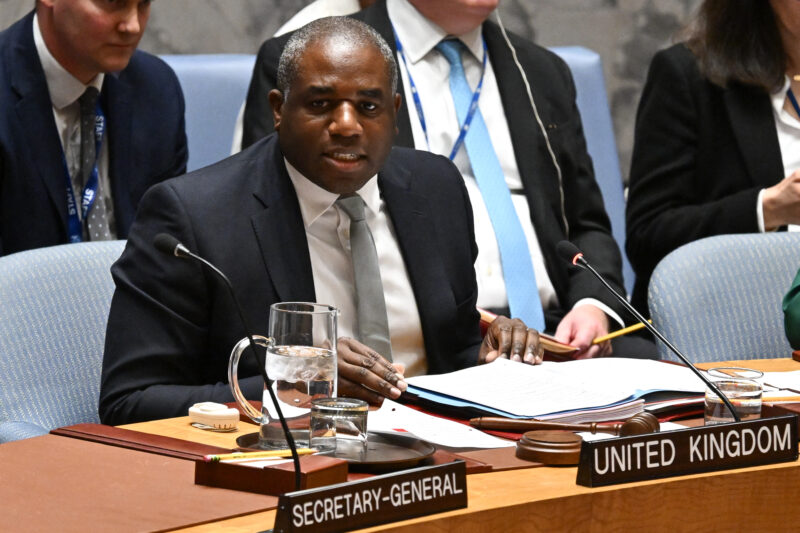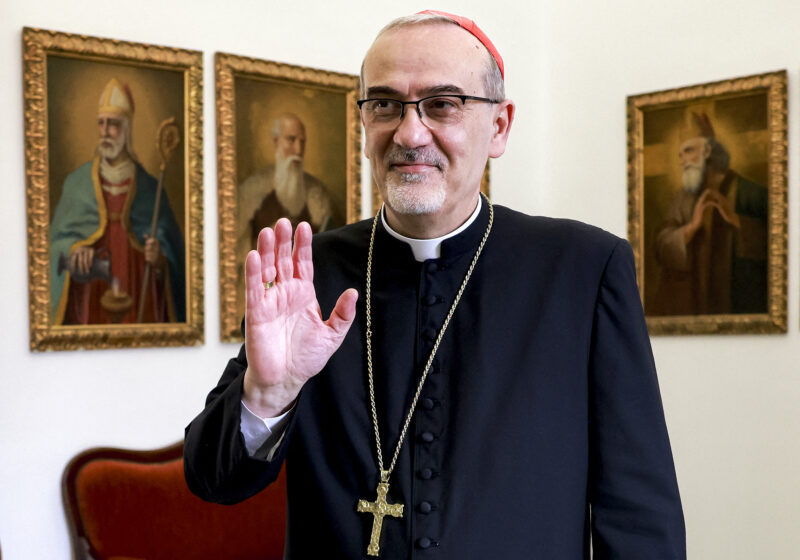Iran protests can be ‘defining moment for a difference,’ Menendez says in Munich
The N.J. senator spoke on a panel during the Munich Security Conference over the weekend

Photo: Tobias Hase/dpa (Photo by Tobias Hase/picture alliance via Getty Images)
15 February 2020, Bavaria, Munich: Robert Menendez, US Senator, at the 56th Munich Security Conference.
Speaking on a panel about the ongoing anti-regime protests in Iran at the Munich Security Conference on Saturday, Sen. Bob Menendez (D-NJ) said that the demonstrations could be a key pivot point for Iran if the international community offers strong support to the protesters.
“The international community needs to wake up to the tear gas and start acting resolutely against the regime on behalf of the Iranian people,” Menendez, who chairs the Senate Foreign Relations Committee, said. “This can be a defining moment for a difference.”
The Democratic senator, who has long pushed for the administration to take a more aggressive stance toward Tehran, said that the current protests open the possibilities of a secular, democratic and prosperous Iran.
“I do believe that this process is an opportunity, if we grab it,” Menendez said. “We lost the Green Revolution, we cannot lose another one,” he said, referring to the 2009 protests after Mahmoud Ahmadinejad was elected president.
Menendez described the women-led nature of the current protests as a “fundamental difference” between the current round of demonstrations and previous ones.
“When women lead the way, there is a dramatic difference in the continuing reality of their standing up for what they believe in, in a very powerful way,” he said. “And I think that has created, also, a change in the view of the Iranian people as to, not what the regime will do next, but what comes next after the regime.”
Menendez reiterated his calls for the Biden administration to definitively close the door on nuclear negotiations with Iran and present a clear alternative strategy, including organizing collective missile defense in the region, working on multilateral sanctions with the Europeans and pursuing greater accountability for the dissidents arrested and killed by the regime.
Menendez was joined on the panel by Hannah Neumann, the chair of the European Parliament’s Delegation for Relations with the Arab Peninsula.
Neumann argued that the European Union needs to more fully support the protests and embrace an “alternative vision” of Iran’s future, rather than continuing to try to deal with the Iranian regime.
“I really have the impression [that] it’s shifting more, the more we can see what… the alternative vision [could] be… the more I think we see a shift,” she said. “And the fact that Iran is clearly siding with Russia, I think, will speed this up.”
Members of the panel also defended the efficacy of sanctions, which one member of the audience argued were hurting the Iranian people more than the regime.
“If you look at South Africa, Nelson Mandela called for sanctions. That’s not an anti-people thing, you’re trying to change the system,” said Masih Alinejad, an Iranian diaspora activist targeted by the regime, who also spoke on the panel. “And sometimes that is really the only punitive measure that you have. And it’s the people of Iran who are actually calling for this sort of isolating the regime.”
Menendez acknowledged that “sanctions are an imperfect tool” but emphasized that they are “not meant to hurt the people who we seek to liberate.” He added that the U.S. is open to finding ways to ensure that sanctions do not prevent resources from reaching those who need them inside Iran.
“Ultimately it is the Iranian regime that has repressed its people,” he continued, “even when flows of money were going in as a result of the [nuclear deal.] They did not improve the lives of the Iranian people, they continued to oppress [them].”
Other panelists included Iranian activists Nazanin Boniadi and Reza Pahlavi, and was moderated by Carnegie Endowment Senior Fellow Karim Sadjadpour and Suzanne Maloney, vice president and director of the Foreign Policy Program at the Brookings Institution.













































































